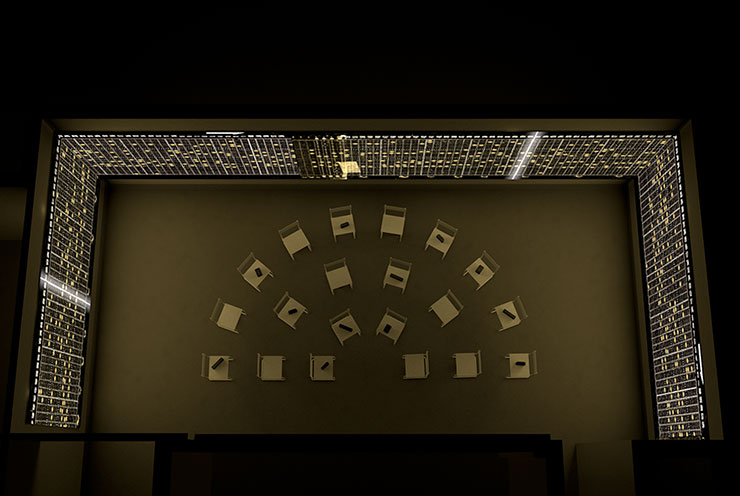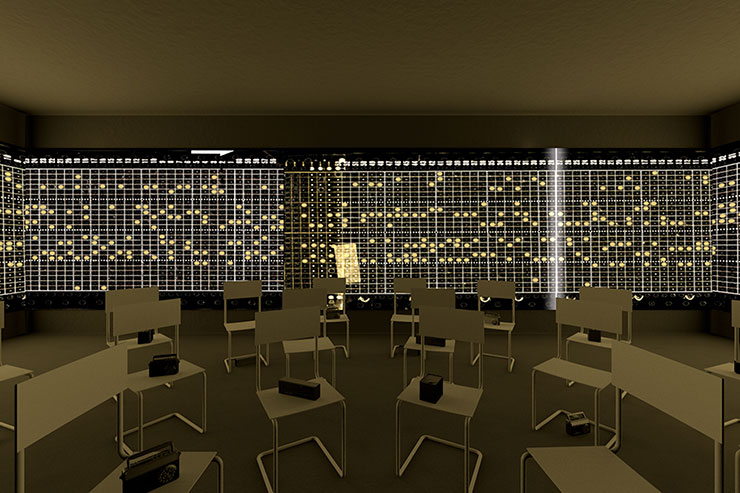Guy Goldstein | Freigedank (Free Thinker) | Trait pour trait: Portrait of the Museum
Using the musical compositions and published writings of German composer Richard Wagner as a starting point, Guy Goldstein (b. 1974) strategically employs the prohibited – the taboo – to illuminate the relationships between government, religion, and society. Using one of the most notorious art works as a test case, he engages with it in a way that not only makes reference to the unique nature of historical European racist crimes but also cautions against any agenda-serving manipulation or censorship in art or on its behalf.
Published under the pseudonym K. Freigedank (Free Thinker) in 1850, Wagner’s article “Das Judenthum in der Musik” (Jewishness in Music) was paramount in planting the seeds of German nationalism and anti-Semitic sentiment in the 19th century. Goldstein boldly appropriates the Friegedank alias as a title for his own current installation. He uses the medium of sound – specifically, pirated radio transmission – to disassemble and restructure Wagner’s opera Rienzi, der Letzte der Tribunen, converting illicit text into music and transforming the physical space itself into a music box. The Rienzi narrative is rife with nationalistic metaphors that later inspired Adolf Hitler as the Nazi Party gained momentum, and Goldstein’s reworking of the forbidden music showcases the power that lies in the manipulation of art for political agenda. The installation is truly experiential – to stand in Goldstein’s “music box” is to absorb through the senses the emotional intensity of Wagner in real time. It sheds a humanist light on myth, censorship, and populism, and it sparks robust dialogue on how art, in all its forms, defines and shapes cultural and political identity.
While challenging in its acknowledgement of the anti-Semitic fervor that was so horrifically woven into the fabric of the Third Reich, Freigedank takes a critical look at the threat of cultural censorship and discrimination on the basis of national, socio-political, and sectarian affiliation. Though often easier to stand idly by, Goldstein reminds us of the dangers of complacency and the importance of free expression.


